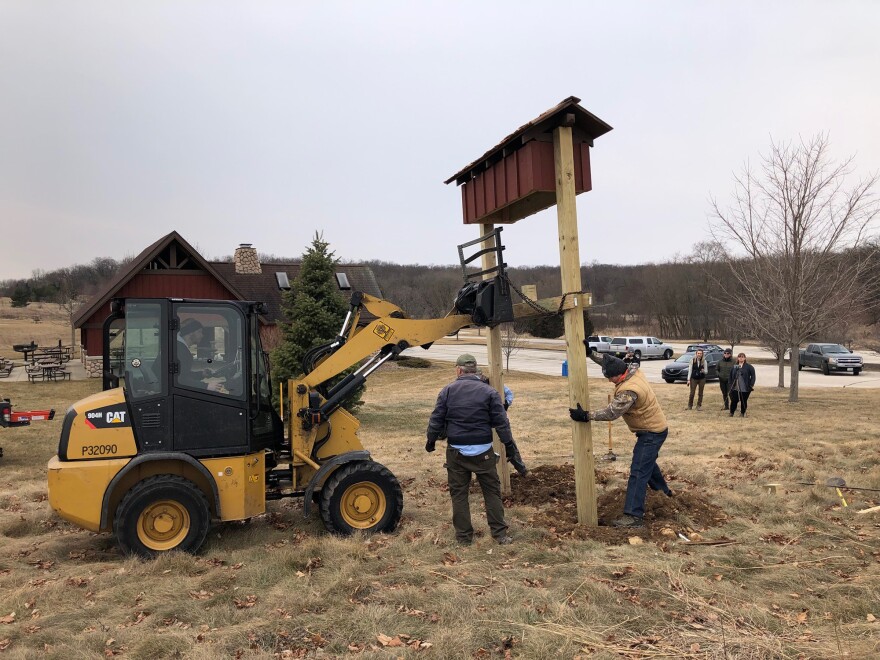If you're feeling blue about news that a million of the world's species are threatened, this might boost your spirits: A "barn swallow condo" is going up in Waukesha County.
A group of UW-Milwaukee students teamed up with a conservation biologist and a landscape architect to help design the barn swallow habitat prototype.
After spending the winter in South America, barn swallows will soon be arriving at Fox River Park in Waukesha County — and they'll be in nesting mode. Conservation biologist Julia Robson says the cobalt blue feathered creatures are aerial insectivores. That means they find their food while in flight.
"They're eating a lot of insects," she says.
Barn swallows and the insects they eat have something in common — they're in decline. Robson says the number of barn swallows in North America has dropped by 46% in the last couple of decades.
"The reason we see fewer insects by the multitudes is because of the widespread use of pesticides," she explains.

Robson is one of the people trying to stem the tide of decline.
Left to their own devices, the swallows gravitate to human-made structures, like a picnic pavilion in the park. The birds build nests in its joints and rafters. Right now, there are remnants of last season inside the pavilion.
"So, they anchor, they make a shelf out of the mud and grass and then they just build up a cup from there," Robson says.
READ: Salamanders Influence IKEA Development In Oak Creek
Fascinating yes, but not always for the people who also like hanging out in the pavilion.
"While you might say, 'You're in a park, you should expect to be immersed in nature.' When you're hosting a bridal shower in a nice park pavilion and there's cake out and there's fecal matter falling from above," she notes, putting things in perspective.
So, Robson began looking for alternatives. She found inspiration from Canada – where barn swallows are considered threatened. That means the country is obligated to do everything in its power to protect swallow habitat.
"Say they're working on a bridge and they have to cap off where the swallows typically nest. If they're doing that, they have to construct artificial nesting somewhere else," she explains.

A group of UW-Milwaukee students and Waukesha County Park's landscape architect helped Robson come up with a design and the resulting prototype was recently installed. Robson calls it a "barn swallow condo," anchored to two tall wooden posts.
"There's four separate compartments within it and two of the compartments have shelves for two separate nests and the other ones are just shelves for an individual nest," she explains.
Robson hopes other bird species might be attracted to the nesting oasis.
"We incorporated some elements to the design that would offer nesting habitats for birds like eastern phoebes and even robins could use a structure like this, up top," she says.

Erica Gerloski is one of the students who helped with the design, complete with a shingled roof. She says there's a reason that its exterior resembles a doll-house-sized version of the park pavilion.
"We wanted to incorporate that rust-colored, red color because people come to this park to enjoy the landscape and to have something that stands out like a sore thumb wouldn't be good. And I think that this structure blends into the aesthetics of the park," Gerloski says.
Robson hopes by creating a quiet buzz around barn swallows and the insects they depend on, more people will begin to care about preserving the increasingly fragile biodiversity.
Have an environmental question you'd like WUWM's Susan Bence to investigate? Submit below.
_





